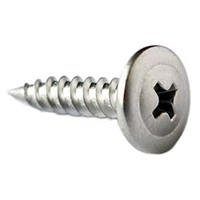M12 Spring Washer Manufacturer Providing Quality Products and Reliable Services
M12 Spring Washer Factory Crafting Reliability in Fastening Solutions
In the ever-evolving landscape of engineering and manufacturing, the demand for high-quality fastening solutions is paramount. Among these, M12 spring washers play a crucial role in ensuring the integrity and longevity of various mechanical assemblies. An M12 spring washer factory is at the forefront of producing these essential components, dedicated to meeting the rigid specifications and standards set forth by various industries.
Understanding M12 Spring Washers
M12 spring washers, also known as lock washers, are circular metal components designed to prevent fastening bolts and nuts from loosening. The M12 designation refers to the metric size, indicating a nominal diameter of 12 millimeters. These washers exert a spring force through their curvature, which helps maintain tension in bolts and screws, providing critical stability in applications that experience vibrations, shocks, or thermal expansion.
Spring washers are typically made from high-carbon steel, stainless steel, or other alloys that offer strength and resistance to corrosion. The choice of material depends on the intended application. For instance, stainless steel washers are preferred in environments prone to moisture and corrosive elements, ensuring that the fastening integrity is maintained over time.
The Manufacturing Process
The production of M12 spring washers involves several key processes to ensure high quality and consistency. This begins with raw material selection, followed by precise cutting, shaping, and heat treatment to enhance the washers' mechanical properties.
1. Material Selection High-quality raw materials are sourced, typically in coil form, for efficiency in production. The selection process scrutinizes the steel’s tension and flexibility to ensure optimal performance.
m12 spring washer factory

2. Forming The coils are fed through a stamping machine, where they are cut into round blanks. These blanks are then formed into the required shape using specialized dies that impart the precise curvature needed for spring action.
3. Heat Treatment After forming, the washers undergo heat treatment to increase their hardness and durability. This step is crucial as it enhances their ability to withstand the forces they will encounter in application.
4. Finishing Once heat-treated, the washers are cleaned and may undergo surface treatments such as galvanizing or coating. These processes contribute to corrosion resistance and improve the lifespan of the washers in harsh environments.
5. Quality Control Throughout the manufacturing process, quality control is paramount. Each batch of washers is rigorously tested for specifications, including dimensions, hardness, and spring characteristics. This ensures that only the best products reach the market.
The Market Demand
The global market for M12 spring washers is driven by various sectors, including automotive, aerospace, construction, and manufacturing. Industries continuously seek reliable fastening solutions to enhance product safety and durability. With innovations in material science and manufacturing techniques, M12 spring washer factories are adapting to meet these growing demands while ensuring that they remain competitive.
Conclusion
The role of an M12 spring washer factory extends beyond mere production; it embodies a commitment to safety, reliability, and innovation in fastening solutions. As industries continue to grow and evolve, these factories will play a pivotal role in providing the critical components that keep our machinery and structures secure. Investing in high-quality M12 spring washers is not just about acquiring a product; it’s about ensuring the longevity and efficiency of the systems they support. As we move forward into a future driven by technology and engineering excellence, the importance of these small, yet mighty components cannot be overstated.
-
Top Choices for Plasterboard FixingNewsDec.26,2024
-
The Versatility of Specialty WashersNewsDec.26,2024
-
Secure Your ProjectsNewsDec.26,2024
-
Essential Screws for Chipboard Flooring ProjectsNewsDec.26,2024
-
Choosing the Right Drywall ScrewsNewsDec.26,2024
-
Black Phosphate Screws for Superior PerformanceNewsDec.26,2024
-
The Versatile Choice of Nylon Flat Washers for Your NeedsNewsDec.18,2024










